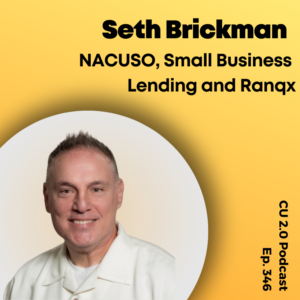What is your take on the barrage of fintechs today? There seems to be an app for everything, a software as a service, a product as a service, a solution as a service, and even a Chief XXX Officer as a service.
How are we to navigate the landscape and find the solutions best suited to help our individual institutions?
And how do we know which fintechs are worth a second look? Some of the services/products/solutions out there are, as an old boss once said, as useless as milking a dead cow. But there are plenty more that are as helpful as an umbrella on a rainy day. The trick is knowing which will help and which will hurt.
General vs Individualized Fintech Solutions
As with most things in my life, I tend to overgeneralize. It just makes my life move faster. I am the type that does not spend any time analyzing lines at the grocery store. I have long since accepted the fact that I will pick the wrong line anytime.
But, at the airport, I have found generalizing helps expedite my process. Don’t get behind vacationers at security—they are never in a hurry and are always disorganized (or drunk). If you see a group of business travelers or people with no jackets and slip-on shoes, get behind them. It is just quicker to generalize in some cases.
How does this relate to fintech and financial institution partnerships, you may ask?
I would answer that putting fintechs into categories can streamline and make it less daunting to partner with them. When I say categorize, I don’t mean by product segment, such as payment fintechs, AI solutions, compliance companies, etc. What I actually mean is this:
- Fintechs that want to eat your lunch
- Fintechs that want to sell you lunch
- Fintechs that want to eat lunch with you
Once you can put them into those categories, it becomes much easier to spot the ones to partner with.
Which Fintechs Are Which?
The fintechs that want to eat your lunch may hurt your income in the long run. Think major players like Kabbage or SoFi. It is their intent to take business away from you, either product by product (e.g. Rocket Mortgage) or entirely (e.g. Chime). They want to own the relationship with the consumer or business (your existing member).
The fintechs that want to sell you lunch may indirectly affect your ROI. Think AI chatbots, member technology, and the like. They built consumer-facing solutions but don’t necessarily have a market of their own, so they want to sell you their product to help your membership.
Generally, their solution is something that you can’t develop (efficiently or effectively) in house. They are often excellent resources for members, staff, or both. These fintechs help you meet a goal or succeed, but ultimately, they’re licensing technology to you, and they’ll succeed when the contract is signed rather than when you see results.
The fintechs that want to eat lunch with you directly affect your ROI. Think loan generation providers like Renofi or Loanify, or non-interest income generators like DoubleCheck. These companies want to partner with you to leverage your brand with your members for mutual success.
Fintechs that want to eat lunch with you often share the income they help you generate. They win when you do, and they’ll work with you to ensure mutual success.
I recommend working with each category of fintechs as follows:
- Never if they eat your lunch;
- As needed if they sell you lunch; and
- Often if they eat lunch with you—this group is worth taking a chance on!
Vetting Fintech Partners and Vendors
At CU 2.0, we do quite a bit of fintech market research. We look for new players in the industry, as well as established companies with new credit union-specific products.
For CU leaders, we offer free Quarterly Fintech Calls. Once per quarter, we’ll call you to discuss five fintechs that caught our eye—and why. You get free fintech education and exposure, and we get market insight. It’s a win-win!




